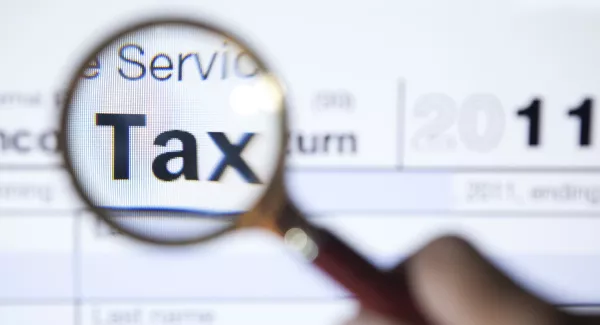By Dr Declan Jordan
As we approach the 10th anniversary of the bank guarantee, the recovery in the Irish economy is more impressive than anyone could have expected.
However, as the economy heats up again we will soon discover just what lessons we learned from the crisis.
It was widely accepted at the time that we needed to widen our tax base.
The local property tax was introduced to go some way towards widening the tax base. It hasn’t worked out that way.
One of the primary reasons for the economic crash of a decade ago was the repeated inability of Irish governments to make difficult economic decisions.
As the economy grew strongly, generating more and more tax revenue, successive Fianna Fáil governments chose to avoid hard decisions by spending more and more of that revenue.
Once again we can see the tendency for the Government to avoid doing what is right on the tax front.
The local property tax was introduced with the expectation that the values on which the tax was based would be revised every three years.
It wasn’t foreseen at the time that property prices would recover so strongly.
According to the CSO, average house prices nationally have increased by just over 80% from their lowest levels in early 2013.
The values on which the property tax is based were last set in 2013.
The next revision was due in 2016, but because of the increase between 2013 and 2016, the government decided to freeze the values at 2013 levels.
This was a classic example of kicking the can down the road.
It means that when the next revision is due in 2019, Irish homeowners face a substantial rise in their property tax bill.
Politically, this is potentially disastrous for the current Government.
The Government will be terrified of a repeat of the water charges debacle. In that situation, there was populist opposition to a charge that made complete economic sense. There is a strong sense of déjà vu.
The local property tax makes compelling economic sense. If anything, the tax does not go far enough.
A land value tax on all land, residential and commercial, would be more effective in broadening the tax base, generating higher revenues, and would be more equitable.

It would also go some way towards freeing up land for development, make it expensive to sit on undeveloped land and incentivising land to be directed into most productive uses.
However, the introduction of a land value tax seems to be off the table for the time being. This means the Government needs to retain the local property tax.
But property taxes should not become detached from the values on which they are based. Otherwise, it becomes simply an arbitrary lump-sum tax on households.
With a general election likely in 2019 or 2020, it is not difficult to envisage the Government again looking to freeze property values for the tax at 2013 levels again.
This would avoid 80% higher property tax bills landing in letterboxes.
Such a freezing of valuations would signal the end of the local property tax.
There is also the complication that homes bought since 2013 are not subject to the tax and would become liable in 2020.
It is hardly likely that values would be revised again, at even higher levels, in the subsequent revision in 2022.
The solution for the Government is to revise the rate of the local property tax.
Currently, the local property tax is charged at 0.18% on the value of the property up to €1m.
Any value in excess of €1m is taxed at 0.25%.
Allowing valuations to rise to current levels and reducing the rate of the tax can maintain the revenue from the tax, and similarly the amount paid by households.

A property that was worth €225,000 in 2013 incurs a charge of €405. If that property is revalued to €375,000, the charge increases to €675, an increase of two thirds.
Allowing valuations to rise to current levels but reducing the rate to 0.11% would set the annual charge to €412.
There would also be potential to raise the rate slightly over the three-year period to 2022.
The local property tax generated €477m in 2017, about the same amount as capital acquisitions tax, less than 6% of corporation tax take, and about 3.5% of the revenue from Vat.
It provided about 10% of the revenue of local authorities. It is not a significant tax in the greater scheme of things.
However, taxes on property and land are warranted to create a wider base and more reliable tax revenues.
The local property tax needs to be retained.
Its design means the Government has to be adaptable in its implementation or risk undermining the tax for good.
Dr Declan Jordan is Senior Lecturer in Economics at Cork University Business School, UCC






